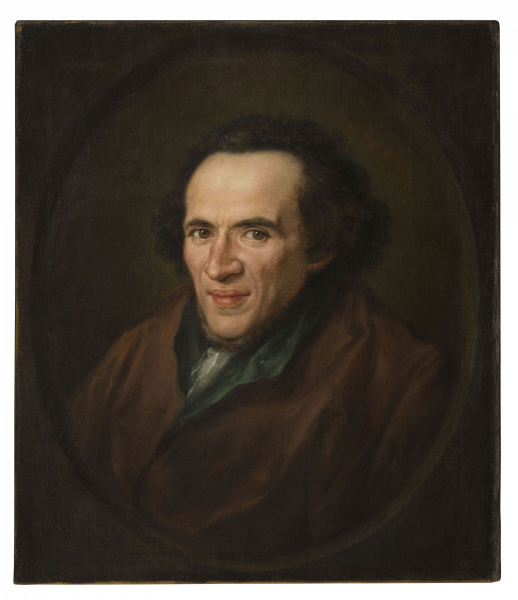Source

Source: Johann Christoph Frisch, Portrait of Moses Mendelsohn, oil on
canvas, 1783. Jewish Museum
Berlin
https://objekte.jmberlin.de/object/jmb-obj-542195
The philosopher and political publicist Moses Mendelssohn (1729-86) was one of the most prominent advocates of Jewish civic rights in the eighteenth century. A lifelong friend of the philosopher and playwright Gotthold Ephraim Lessing (1729-81), who modeled his dramatic poem Nathan the Wise (1779) on him, Mendelssohn argued for the separation of religion and state in his treatise Jerusalem, or: On Religious Power and Jewry (1783). His writings and his translation of the Hebrew Bible into High German gave impetus to German Jewish cultural assimilation. In his view, faithfulness to the Jewish religion did not necessarily entail social or cultural distancing from non-Jewish Germans. Oil on canvas by Johann Christoph Frisch (1738-1815), 1783.

Source: Johann Christoph Frisch, Portrait of Moses Mendelsohn, oil on
canvas, 1783. Jewish Museum
Berlin
https://objekte.jmberlin.de/object/jmb-obj-542195
JMB